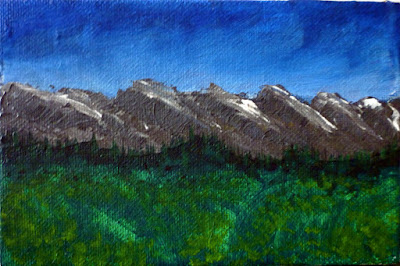The average human has 3 decision making modes. I'm talking in the philosophical sense. All thinking actually happens in the brain, little neurons firing away. But I divide this thinking into 3 categories. The Brain, The Heart, and The Gut. The Genitals don't count because they can only think one thing. That doesn't count as making a decision.
The Brain - Logic, rational thought, deep processing. The brain is where information is processed and sorted. Choices can be held at arms length. If you need to remove your emotions from a choice, the brain is the tool to use. Very much like a computer, the brain is good at sorting all the shades of grey in the world and getting to the core of a problem. The brain is your defense against a world that wants to take advantage of you. The brain can think itself in circles with all the possible outcomes until we freeze and can't make a choice. The brain can over think, leading to incorrect conclusions. The brain learns and stores skills so you can actually do more with your life than breathe, eat, shit, and mate. The brain dreams when you sleep, sometimes just for entertainment, sometimes to continue processing information. The brain always wants more information and this is one thing that drives our need for discovery and our desire to understand. Unfortunately too many people have figured out ways to turn their brains off. And sometimes the logical choice isn't what we want and isn't what we need. We are human after all.
The Heart - Emotion, feelings, desires and wants. The heart is the opposite of the brain. Love lives in the heart. But, like a hummingbird, the heart can flit from one thing to another, one feeling to another, without realizing the consequences or seeing the long term effects. The heart has a long memory when hurt but a very short one when presented with something it wants. The heart wants love but never considers that love can hurt as much as it heals. That love can change. That once you find what your heart yearns for, you might not want it, or it might not want you. The heart clouds the brain so that you see what you want and you avoid conflict. It can get so wrapped up in what other people want, thinking that's how to get what it wants, that you begin to lose yourself. The heart, though, attaches you to people important to you. It makes you loyal and allows you to trust people so that you aren't lonely. Despite the heart's vulnerability, most people still find it worth while to expose themselves to the danger because love, friendship, and trust are ultimately so rewarding. Everyone has heart but sometimes they shut it out and forget what makes their heart feel good. Sometimes they get hurt so bad they wall off their heart so no one gets through. It's hard to realize that just makes things worse. The heart can get stuck lamenting what it has lost. But if you listen, the heart is also the place where you are reminded how much you loved your first box of crayons, and there was a time when you thought being an astronaut lion tamer was a perfectly reasonable career (were you the astronaut, or was it the lions?).
The Gut - When the brain says "bzzprf...does not compute...grhhbzz...error..." and the heart says "Wah wah woe is me I'm so emo" the gut is there to dope slap the other two. The gut will say "get up off the floor and get on with it!" The best time to do something is always now. The gut is instinct shaped by experience. The gut quiets fear, musters will, and
does. This paragraph is short because the gut doesn't talk much and can't waste time with words. Kinda like Chuck Norris.
What does this have to do with me, now? After many years of listening to my brain and heart fight, I have finally listened to my gut. Could I have heard it sooner? Maybe, but like I said, the gut relies on experience. It can take time to get the experience you need. Now I've listened and my gut said, "This is your compass. It points west. Move to Colorado. Even the few things left in Wisconsin that are good can't give you the long term happiness you need. It's time to go."
So, dear friends, I will be moving to the Denver area in summer of 2010. The plan as it stands now is to go find a place to live in March or April and move in June or July. There are many details to finalize but my gut keeps reminding me "don't think, don't feel. It's time to
do."





